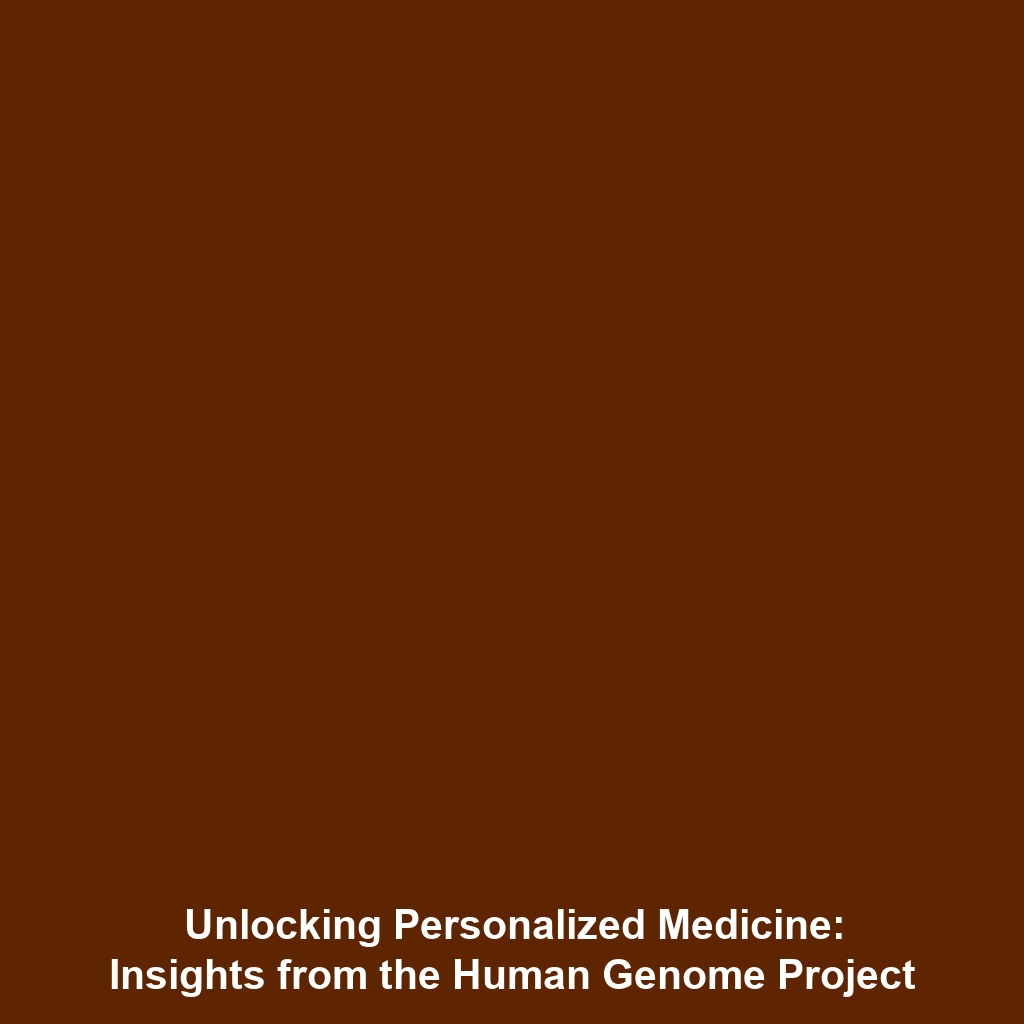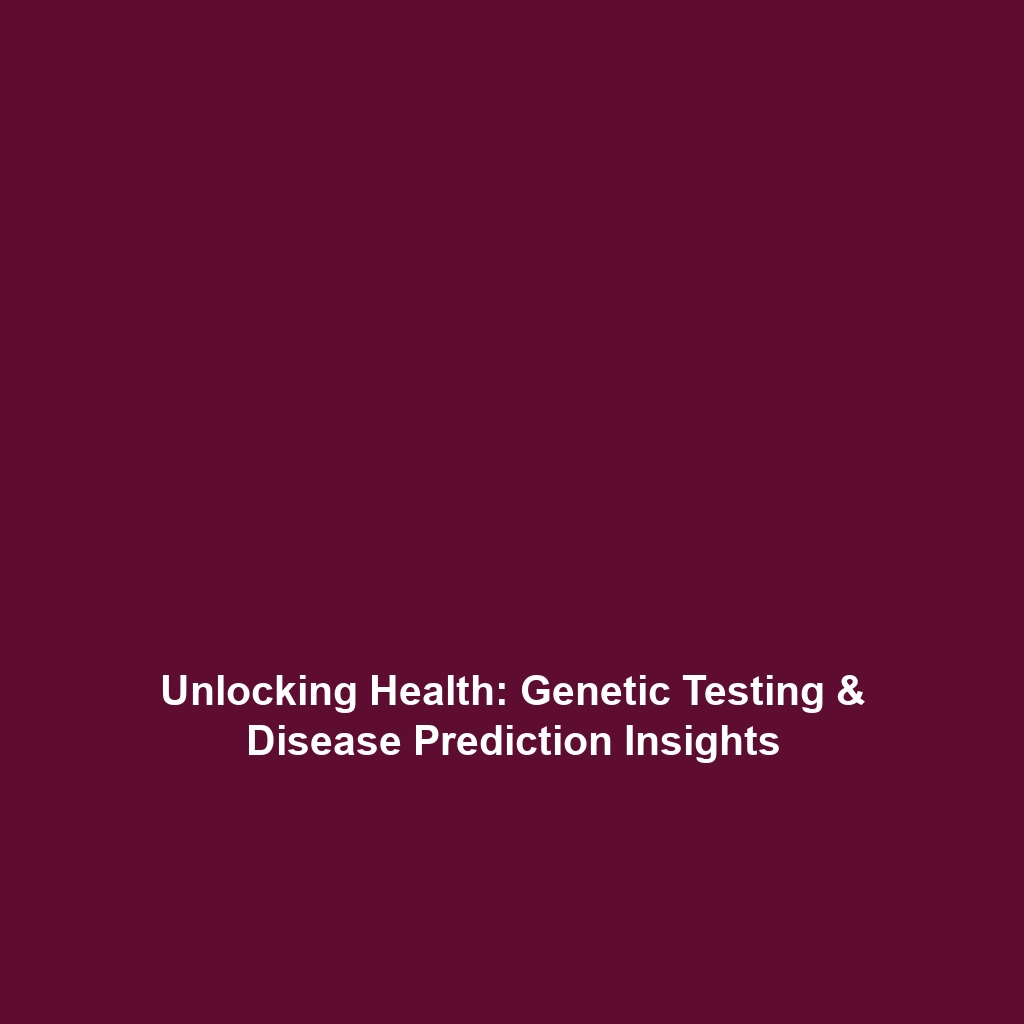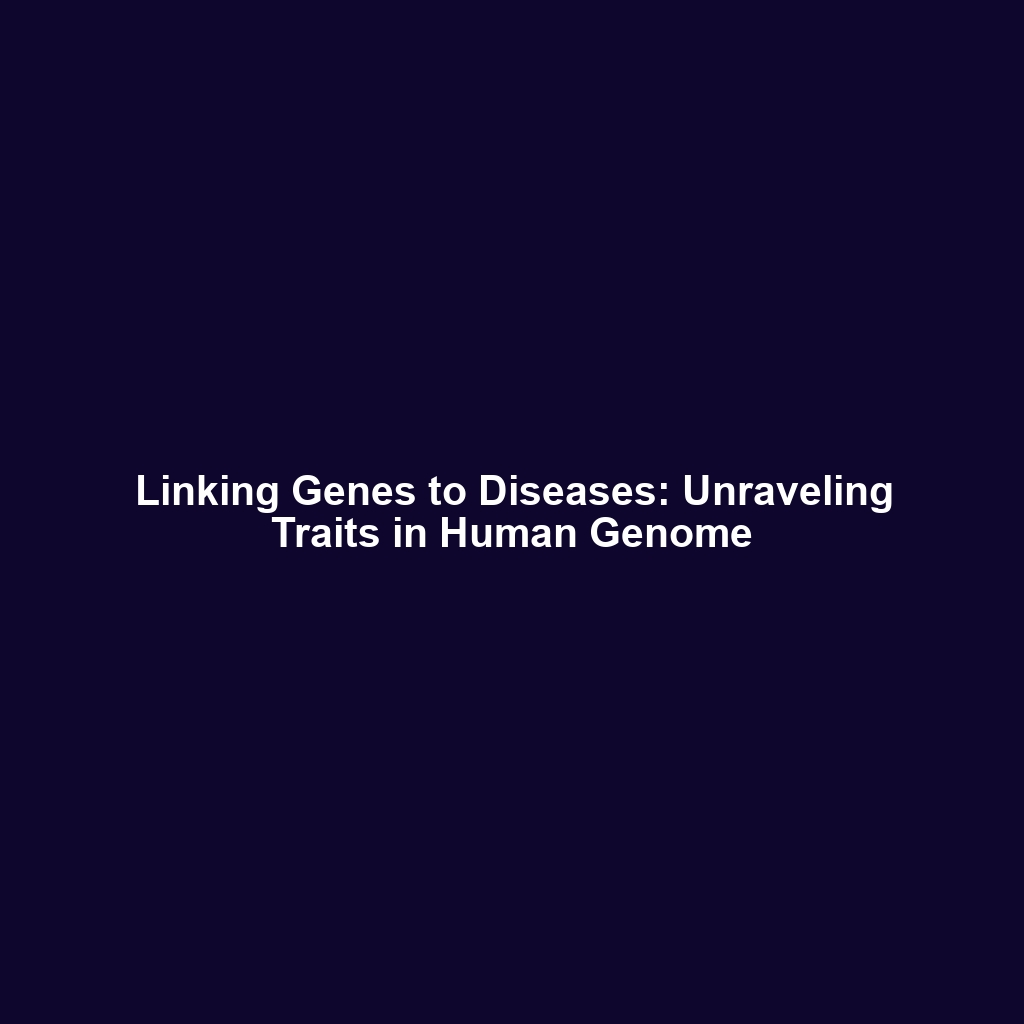Understanding Gene Function: Insights from the Human Genome Project
Introduction
The Human Genome Project (HGP) has revolutionized our understanding of genetics and biology by mapping the entire human genome. A crucial aspect of this monumental undertaking is Understanding Gene Function. Deciphering how genes operate provides insights into biological processes, disease mechanisms, and potential therapeutic approaches. As scientists delve deeper into the functionalities of genes, the implications of their findings extend far beyond basic biology, impacting medicine, agriculture, and biotechnology. This article explores key concepts, applications, challenges, and future developments in understanding gene function, highlighting its significance within the Human Genome Project.
Key Concepts
Understanding gene function involves a range of principles that elucidate how genes interact with each other and their environment. Key concepts include:
- Gene Expression: The process by which information from a gene is used to synthesize functional gene products, typically proteins.
- Regulatory Elements: DNA sequences that control the timing and level of gene expression.
- Gene Interactions: The networks of interactions between different genes that influence their respective functions.
- Disease Associations: Identifying how mutations in specific genes contribute to diseases, which aids in developing targeted therapies.
Studying gene function is integral to the Human Genome Project, as it helps scientists understand the role of specific genes in various biological processes and diseases.
Applications and Real-World Uses
Understanding gene function has led to remarkable applications across various fields. Some of the most significant real-world uses include:
- Medical Diagnostics: Utilizing gene function knowledge to develop tests that determine genetic predispositions to diseases.
- Gene Therapy: Applying insights into gene function to develop treatments that correct or replace defective genes responsible for disease.
- Pharmacogenomics: Tailoring medications to individuals based on their genetic profiles, optimizing efficacy and reducing adverse effects.
- Agricultural Advancements: Engineering crops for improved resilience and yield based on understanding their genetic characteristics.
These applications demonstrate how Understanding Gene Function is utilized within the framework of the Human Genome Project, positively affecting healthcare and agriculture.
Current Challenges
Despite advancements, several challenges persist in studying and applying Understanding Gene Function. These include:
- Complex Gene Interactions: Determining how genes operate within intricate networks remains challenging due to multifactorial influences.
- Ethical Concerns: Issues surrounding genetic privacy and discrimination arise as gene function data becomes more accessible.
- Data Interpretation: The sheer volume of genomic data collected raises significant challenges in accurately interpreting and leveraging this information.
These challenges highlight the need for continued research and ethical considerations in the realm of gene function.
Future Research and Innovations
As the field of genetics evolves, several exciting areas of future research and innovation are emerging, including:
- CRISPR Technology: Advanced gene-editing tools are being refined to improve precision in modifying gene functions.
- Personalized Medicine: Optimizing treatment strategies based on an individual’s genetic makeup is becoming increasingly feasible.
- Big Data Analytics: Leveraging artificial intelligence to analyze large datasets for better insights into gene function and interactions.
These innovations promise to enhance our understanding of gene function significantly and will likely shape the future direction of the Human Genome Project.
Conclusion
In summary, Understanding Gene Function is a pivotal element of the Human Genome Project, driving advancements in medicine, agriculture, and biotechnology. The exploration of gene functions not only enhances our biological knowledge but also enables practical applications that can improve the quality of life. To stay informed about ongoing research and its implications, consider exploring further topics related to human genetics and genomics.
Read more about Gene Therapy |
Explore Pharmacogenomics




